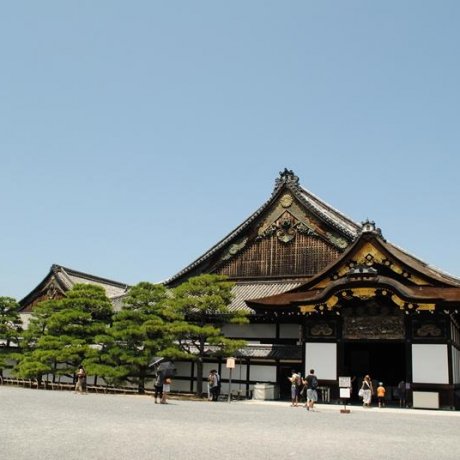Launched on April 25th 2019, HOTEL CANATA KYOTO offers 16 contemporary styled rooms within a stone's throw of the UNESCO World Heritage Site of Nijo Castle (Nijō-jō), providing world-class views to match.
Canata mixes the feel of a ryokan with contemporary flair sure to appeal to modern sensibilities and challenge guests to avoid Kyoto's beloved sightseeing spots and choose this comfortable retreat instead.

Every individual room is designed to harness natural light and showcase different artworks, across interior spaces ranging from the 23 m2 standard up to the 73 m2 suite. Small details like Bang & Olufsen smart speakers or rain showers help enhance your stay.

But without doubt the main draw is the CANATA Suite – which comes in two varieties, the green-hued 'Matsu' (Pine) and blue-hued 'Sora' (Sky). Featuring subtle differences throughout, they also share something rather special, boasting their own wide terrace with views over Nijo Castle, against the sprawling Nishiyama mountain range in the distance. Kick back with a book, a glass of champagne — or both. The feeling evokes the local Kyoto tradition of 'kawadoko', relaxing by the riverside.


Nijo Castle: Former Imperial Residence
Built under the order of Tokugawa Ieyasu, Nijo-jo has served as the home of the Tokugawa shogun, an Imperial property, and is now..
Beyond the views, the dedication to art here—thanks to director, Eriko Kawashima—should also leave a powerful impression, drawing on creators from various fields to provide a touch of modern Japanese culture. One such artist is Kyoto-born Shinichiro Yoshida, who specialises in antique textiles and hemp-based artworks.
Botanical Brandy at the Bar
Downstairs in HOTEL CANATA's lounge, enjoy some relaxing music or a quick read thanks to the small library in the foyer. Refreshing cocktails can be enjoyed at the lounge bar – a collaboration with Mitosaya (ミトサヤ), Japan's first 'botanical brandy' distillery, providing a range of gins, brandy and Japanese whiskeys.

Cuisine comes courtesy of Tokyo-based 'Japanese Cusine Kinari' (日本料理 僖成), based on local Kyoto dishes and ingredients to provide a set menu-style feast. Inspired by Japanese washoku, it also comes in a more Western interpretation too.





































